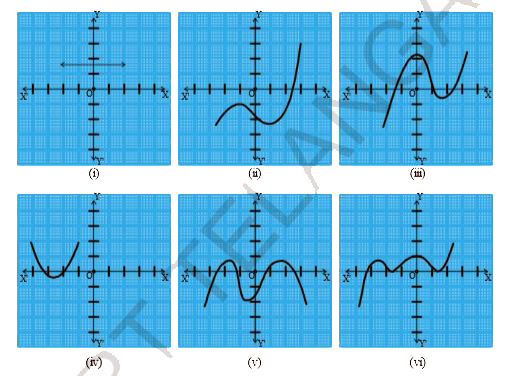Find the quadratic polynomial in each case, with the given numbers as the sum and product of its zeroes respectively.
√2,13Solution in Gujrati
Step by step video & image solution for Find the quadratic polynomial in each case, with the given numbers as the sum and product of its zeroes respectively. sqrt(2),1/3 by Maths experts to help you in doubts & scoring excellent marks in Class 10 exams.
Updated on:21/07/2023Topper's Solved these Questions
- POLYNOMIALSBOOK - NCERT GUJARATICHAPTER - POLYNOMIALSEXERCISE - Exercise - 3.4
11 Videos
- POLYNOMIALSBOOK - NCERT GUJARATICHAPTER - POLYNOMIALSEXERCISE - OPTIONAL EXERCISE [For extensive learning]
6 Videos
- POLYNOMIALSBOOK - NCERT GUJARATICHAPTER - POLYNOMIALSEXERCISE - Exercise - 3.2
11 Videos
- MENSURATIONBOOK - NCERT GUJARATICHAPTER - MENSURATIONEXERCISE - OPTIONAL EXERCISE
5 Videos
- PROBABILITYBOOK - NCERT GUJARATICHAPTER - PROBABILITYEXERCISE - THINK AND DISCUSS
3 Videos
Similar Questions
Divide the polynomial p(x) by the polynomial g(x) and find the quotient and remainder in each of the following :
p(x)=x3−3x2+5x−3,g(x)=x2−2
View SolutionVerify that the number gives alongside the cubic polynomials below are their zeroes Also verify relationship betweeen the zeroes and coefficients in each case.
2x3+x2−5x+2,(12,1,−2)
View SolutionThe graphs y=p(x) are given in the figure below, for some polynomials p(x). In each case, find the number of zeroes of p(x).

View SolutionA golf ball has diameter equal to 4.1 cm. Its surface has 150 dimples each of radius 2 mm. Calculate total surface area which is exposed to the surroundings. (Assume that the dimples are all hemispherical) [π=227]
View SolutionWhy is tossing a coin considered to be a fair way of deciding which team should get the ball at the beginning of any game
View SolutionFind the quadratic polynomial in each case, with the given numbers as the sum and product of its zeroes respectively.
(i) 14,−1
View SolutionFind the quadratic polynomial in each case, with the given numbers as the sum and product of its zeroes respectively.
(ii) √2,13.
View SolutionFind the quadratic polynomial in each case, with the given numbers as the sum and product of its zeroes respectively.
(iii) 0,√5.
View SolutionFind the quadratic polynomial in each case, with the given numbers as the sum and product of its zeroes respectively.
14,−1
View SolutionFind the quadratic polynomial in each case, with the given numbers as the sum and product of its zeroes respectively.
√2,13
View SolutionFind the quadratic polynomial in each case, with the given numbers as the sum and product of its zeroes respectively.
0,√5
View SolutionFind the quadratic polynomial in each case, with the given numbers as the sum and product of its zeroes respectively.
14,−1
View SolutionFind the quadratic polynomial in each case, with the given numbers as the sum and product of its zeroes respectively.
√2,13
View SolutionFind the quadratic polynomial in each case, with the given numbers as the sum and product of its zeroes respectively.
0,√5
View SolutionFind the quadratic polynomial in each case, with the given numbers as the sum and product of its zeroes respectively.
14,−1
View Solution
